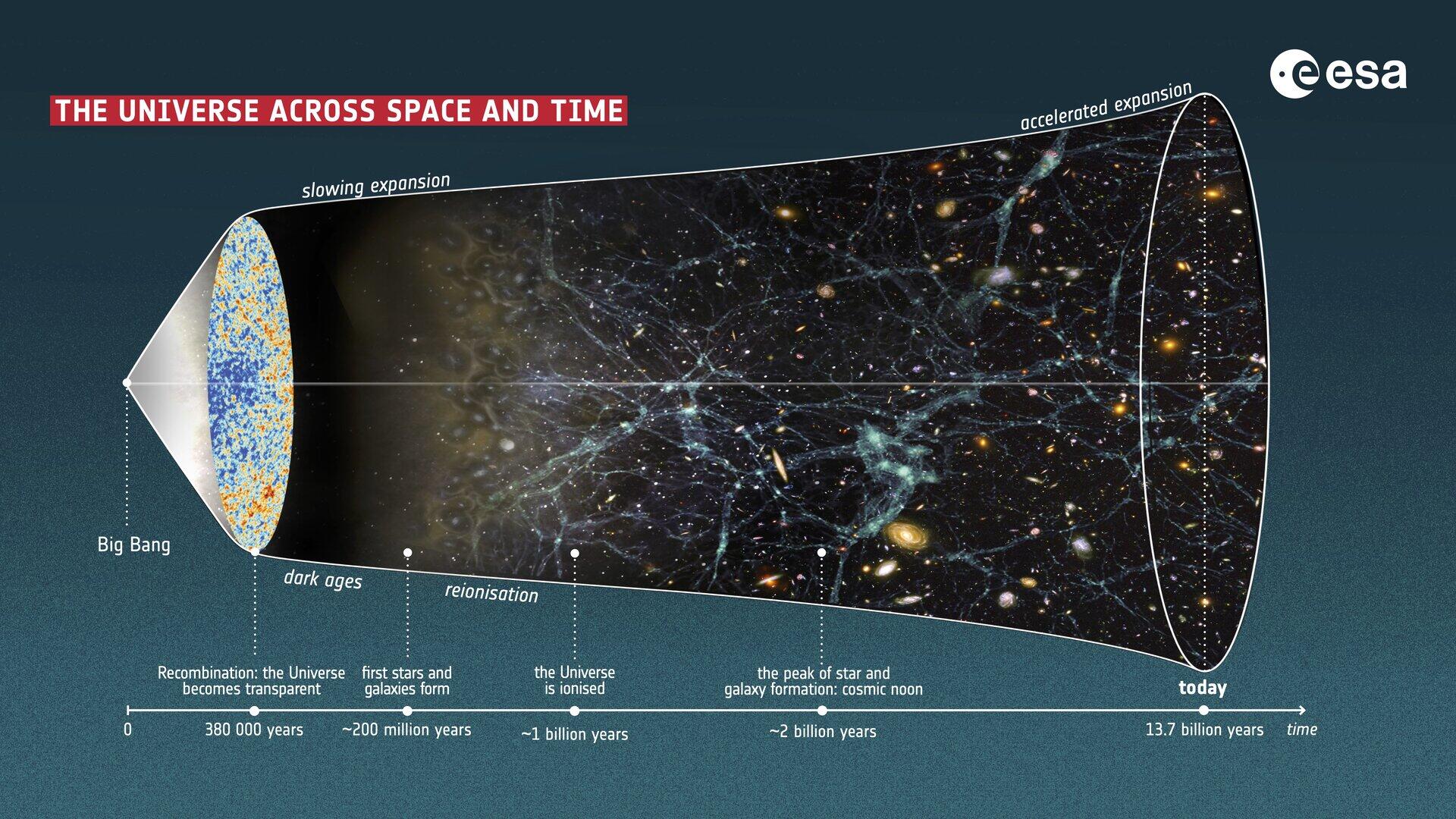Science
Astronomers Uncover New Evidence of Universe’s Slowing Expansion

A recent study led by astronomers at Yonsei University in South Korea suggests that the universe may be experiencing a slowdown in its expansion. The research highlights a phenomenon known as the “Hubble residual,” which indicates that the universe has entered a phase of decelerated expansion. This finding challenges long-held beliefs about the nature of dark energy and its role in the universe’s growth.
According to Professor Young-Wook Lee, the lead researcher, the study offers strong statistical support for its conclusions. “Our study shows that the universe has already entered a phase of decelerated expansion at the present epoch and that dark energy evolves with time much more rapidly than previously thought,” he stated. If verified, these results could represent a significant paradigm shift in cosmology, nearly 27 years after the initial discovery of dark energy.
The implications of this research extend beyond mere academic interest. Should these findings be confirmed through further study, they could reshape our understanding of the universe and its future trajectory. The concept of dark energy, which has been largely accepted as a driving force behind the acceleration of cosmic expansion, may need reevaluation.
The researchers utilized advanced statistical methods to track the age of the universe and analyze the Hubble residuals. This approach provided a clearer understanding of how the universe’s expansion rate is evolving. The team’s analysis suggests that the traditional view of an accelerating universe might not fully capture the complexity of cosmic dynamics.
As the scientific community digests these compelling findings, the potential for future research grows. Cosmologists are now tasked with exploring the nuances of dark energy and its implications for the fate of the universe. This study not only adds depth to the field of cosmology but also raises critical questions about the fundamental forces that govern our universe.
In conclusion, the research led by Professor Lee and his team at Yonsei University marks a pivotal moment in our understanding of cosmic expansion. As scientists continue to investigate these findings, the conversation surrounding dark energy and the universe’s fate is likely to evolve, paving the way for new discoveries in the realm of astrophysics.
-

 Politics2 weeks ago
Politics2 weeks agoHamas Chief Stresses Disarmament Tied to Occupation’s End
-

 Science2 weeks ago
Science2 weeks agoOhio State Study Uncovers Brain Connectivity and Function Links
-

 Entertainment2 weeks ago
Entertainment2 weeks agoMegan Thee Stallion Exposes Alleged Online Attack by Bots
-

 Science3 weeks ago
Science3 weeks agoResearchers Challenge 200-Year-Old Physics Principle with Atomic Engines
-

 Top Stories2 weeks ago
Top Stories2 weeks agoFederal Agents Detain Driver in Addison; Protests Erupt Immediately
-

 Entertainment2 weeks ago
Entertainment2 weeks agoPaloma Elsesser Shines at LA Event with Iconic Slicked-Back Bun
-

 Business2 weeks ago
Business2 weeks agoHome Depot Slashes Prices on Halloween Favorites Up to 75%
-

 Top Stories2 weeks ago
Top Stories2 weeks agoOrioles Hire Craig Albernaz as New Manager Amid Rebuild
-

 Entertainment2 weeks ago
Entertainment2 weeks agoSyracuse Stage Delivers Lively Adaptation of ‘The 39 Steps’
-

 Politics3 weeks ago
Politics3 weeks agoNHP Foundation Secures Land for 158 Affordable Apartments in Denver
-

 World3 weeks ago
World3 weeks agoGlobal Military Spending: Air Forces Ranked by Budget and Capability
-

 Top Stories2 weeks ago
Top Stories2 weeks agoWill Smith Powers Dodgers to World Series Tie with Key Homer









